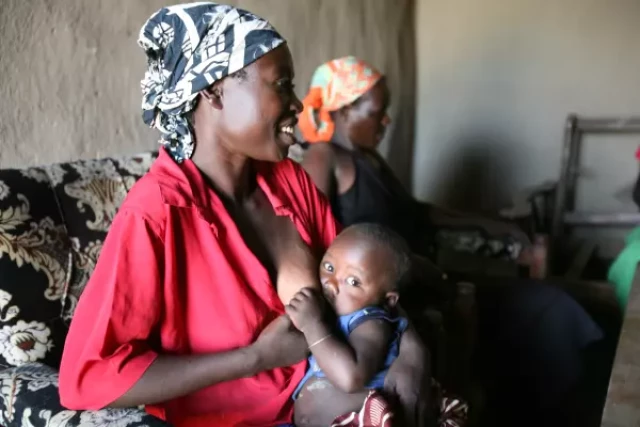Over 7,000 lactating mothers living with HIV and AIDS in Nasarawa State lack basic sources of livelihood, leading to poor exclusive breastfeeding practices and a rise in child and maternal mortality.
Lactating mothers can hardly afford three square meals, a major factor contributing to the low level of exclusive breastfeeding for the first six months.
Breast milk remains the best food for the child in the first six months, but most women living with HIV and AIDS in Nasarawa State can hardly afford even one square meal, making it difficult for them to have the strength to breastfeed their children.
Former State Coordinator of the Network of People Living with HIV and AIDS, Mr Philip Lokoko, highlighted these challenges during an event to mark the 2024 World Breastfeeding Week in Lafia on Tuesday.
He said this is the first time hundreds of lactating mothers living with HIV and AIDS in Nasarawa State publicly marked World Breastfeeding Week, aiming to raise awareness about the benefits of exclusive breastfeeding.
Mr. Lokoko stated that according to records from various facilities across the state, over 15,000 childbearing mothers tested positive for HIV and AIDS, but only 7,000 women had publicly sought help.
He noted, “Most lactating mothers can hardly afford three square meals, a major factor contributing to the low level of exclusive breastfeeding for the first six months.”
“Breast milk remains the best food for the child in the first six months,” Lokoko emphasized. “Most women living with HIV and AIDS in Nasarawa State can hardly afford even one square meal. How can they have the strength to breastfeed their children? We want the government to intervene and set up special aid programs for these women.”
Nasarawa State Coordinator of the Association of Women Living with HIV and AIDS, Mrs. Rahab Irmiya, stressed the need to focus on lactating mothers living with HIV and AIDS to combat malnutrition and child mortality amid economic challenges.
A lactating mother of four, Mrs Rahila Audu, shared that her children are HIV-negative despite her status, but economic hardship is a significant barrier to practising exclusive breastfeeding.
“If I don’t eat enough food, how can I have the strength to feed my baby?” Audu asked. “Breast milk might not be available and nutritious because I don’t eat good food. We need government support, especially for those of us with certificates who need jobs.”
Another mother, Mrs Ann Lashile, explained that life had been difficult since she gave birth three months ago, making it impossible to maintain exclusive breastfeeding due to a lack of livelihood.
Dr. Ruth Bello, Executive Director of Nasarawa State AIDS Control Agency, noted that awareness campaigns have reduced stigma, encouraging more women to seek help. She added, “Campaigns for exclusive breastfeeding are essential to enhance the health of both mothers and children for a better society.”
The government is urged to intervene and set up special aid programs for these women to combat malnutrition and child mortality amid economic challenges.




















